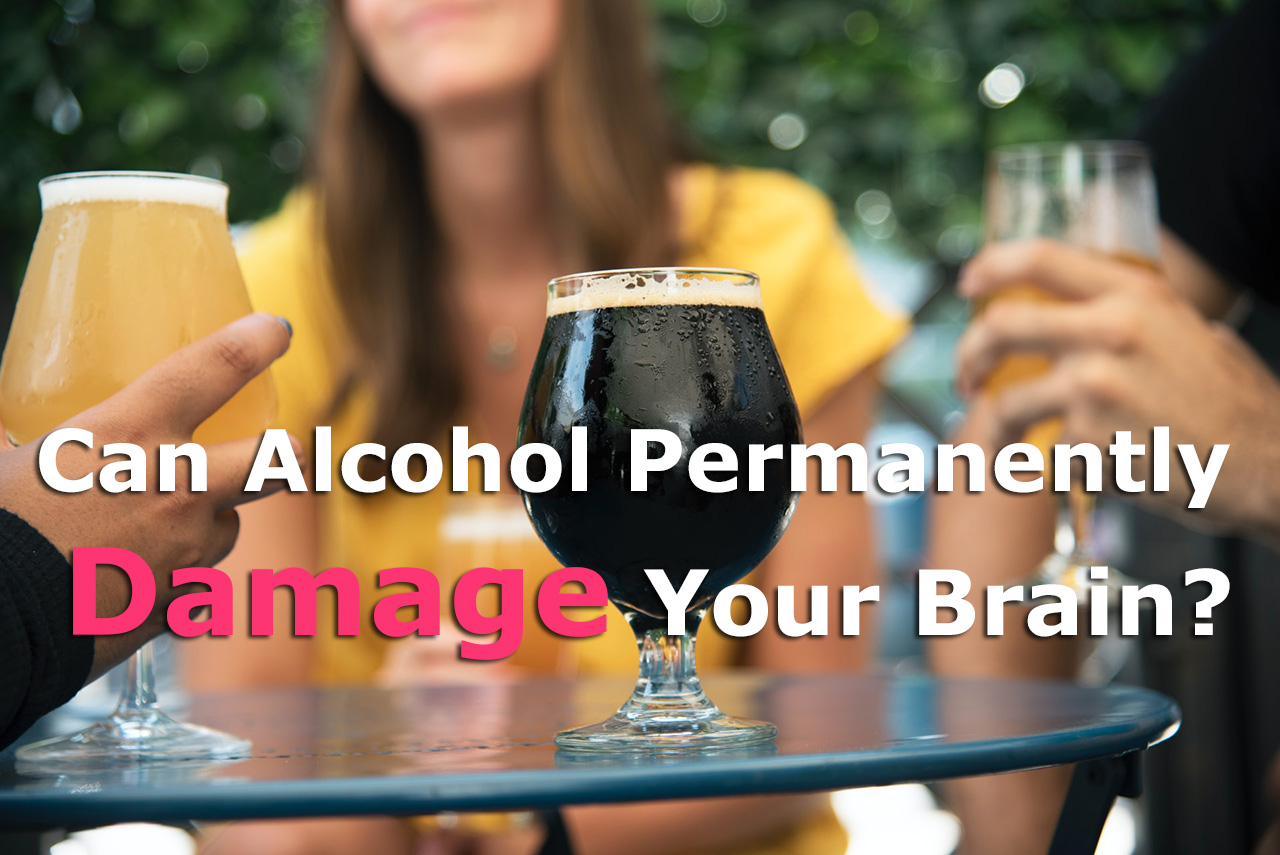Alcohol can cause permanent damage to the brain and nervous system, according to a study by medical professionals from Harvard Medical School.
“A new study analyzed data from nearly 600,000 people who drank at least some alcohol, and monitored their health over time. They found that regardless of gender, higher alcohol consumption was associated with a higher rate of stroke, fatal aneurysms, heart failure, and death.“
Alcoholics are at an increased risk of developing irreversible, age-related cognitive dysfunction like memory loss. Heavy drinking and binge drinking can result in permanent damage to the brain and nervous system as well as increased susceptibility to developing conditions like stroke or heart disease.
The study also found that alcohol activates brain regions that are important for learning and memory, which means drinking too much alcohol can hinder your ability to learn new information. Drinking more than two drinks per day is not recommended because the negative effects may outweigh the benefits. However, drinking two to three glasses of wine or beer per week is considered to be safe.
The study also found that alcohol interacts with the brain in a way that can lead to intellectual disability and affect social functions such as language, self-control and judgment. More than 12 percent of the participants in this study suffered from brain damage as a result of excessive alcohol consumption. One in five reported long-term mental decline. This is approximately two times higher than the rate of Alzheimer’s Disease, which is about 7 percent. The severity of cognitive dysfunction increased with alcohol consumption: The more that people drank, the greater their risk of neurological disorders.
Another finding of the study was that heavy drinking could lead to high blood pressure, stroke, heart disease, fatty liver disease and possibly cancer. This study shows that alcohol can act as a neurotoxin, which means it kills brain cells.
There are many factors to consider when determining how much alcohol you consume. Some people can drink wine occasionally with no negative effects. However, even if you are not consuming alcohol on a daily basis, binge drinking is still harmful. Binge drinking is defined as four or more drinks at one time for men and three or more drinks at one time for women. Alcohol is a toxic substance that impairs brain function. Drinking alcohol can make you feel good at first, but you may experience side effects such as nausea, vomiting, confusion and blackouts.
How much alcohol consumption is too much?
The National Institute on Alcohol Abuse and Alcoholism (NIAAA) defines low-risk drinking as the consumption of up to one drink per day for women and two drinks per day for men. The World Health Organization (WHO) also recommends that women who are pregnant or breastfeeding should not drink alcohol at all, and that men should limit their alcohol intake to two drinks per day.
The amount of alcohol in a drink varies between different alcoholic beverages, as well as depending on where you purchase your drink. One beer may have more or less alcohol than another beer depending on the brand and the type of beer.
Are there benefits of alcohol?
With moderate drinking, you may be more likely to engage in healthy activities. Alcohol can improve your ability to concentrate, and this helps you focus on things that are important to you. (Note: Too much drinking can interfere with your ability to accomplish tasks at work.)
There’s also the psychological or social impact. Having a drink while getting together with family and friends can be helpful to relieve stress and promote a sense of well-being.
According to the NIAAA, there is not enough evidence to show that moderate alcohol consumption boosts cognitive function, such as memory or problem-solving skills. However, excessive alcohol consumption is linked with a higher risk of developing dementia and other alcohol-related disorders.
Genes play a role
Recent advances in human genetics are starting to make it possible to identify genes that might be involved in the development of alcoholism. However, more research is needed before any genetic test for alcohol drinking behavior will be ready for use by doctors or insurance companies.
Parents who drink alcohol excessively may be more likely than other parents to have children who develop alcohol problems. However, because of the progressive nature of this kind of disorder, future social, behavioral and physical problems will depend on what you do today or tomorrow. If you are concerned about your drinking or someone else’s, contact a professional for advice today.
